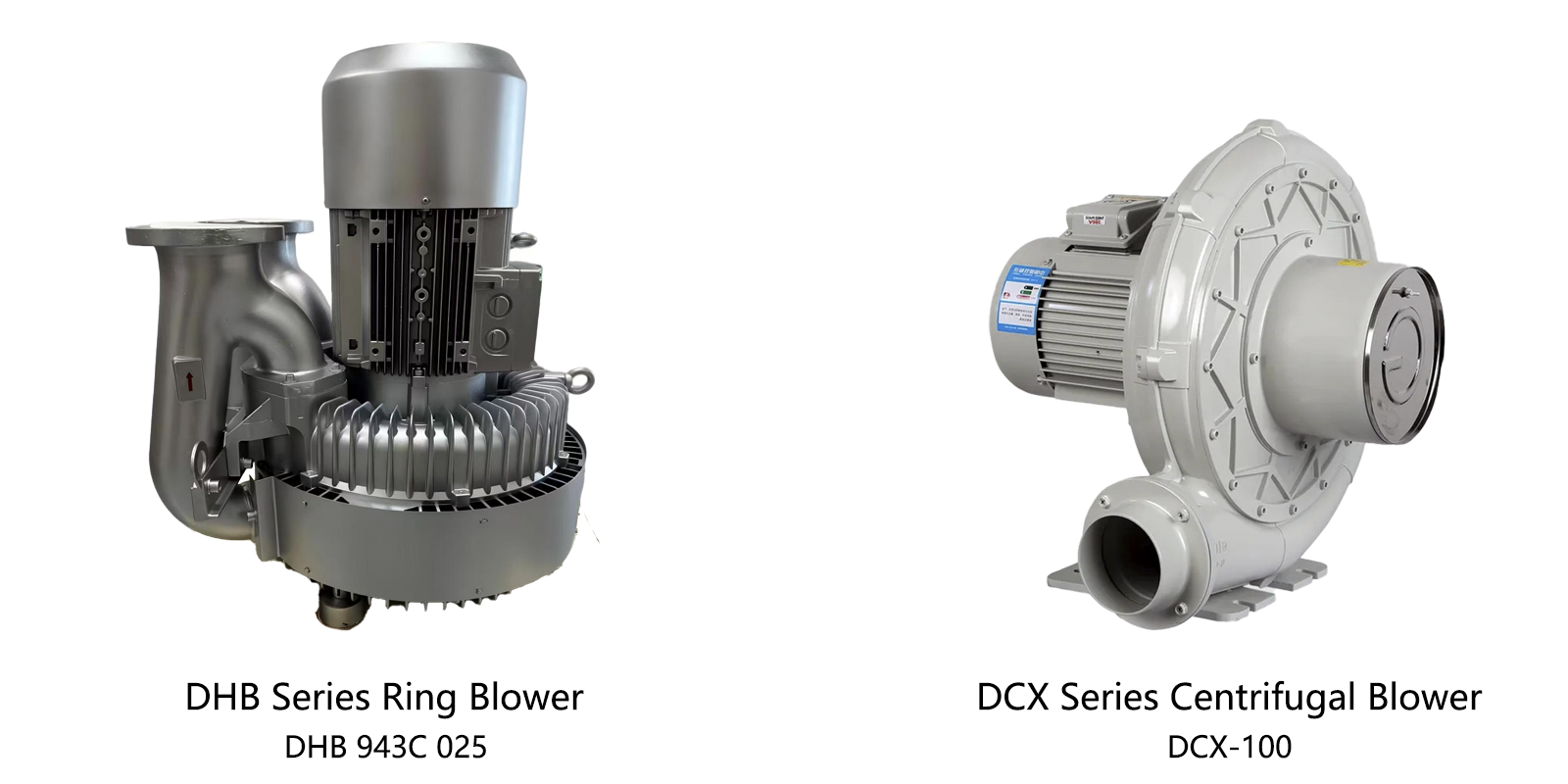
In industrial applications, air movement and pressure management are crucial for ensuring efficiency, reliability, and cost-effectiveness. Among the most widely used technologies are ring blowers and centrifugal blowers, each offering unique characteristics that make them suitable for different operational requirements. Understanding the differences between these two blower types is essential for selecting the right equipment for manufacturing, processing, or environmental applications.
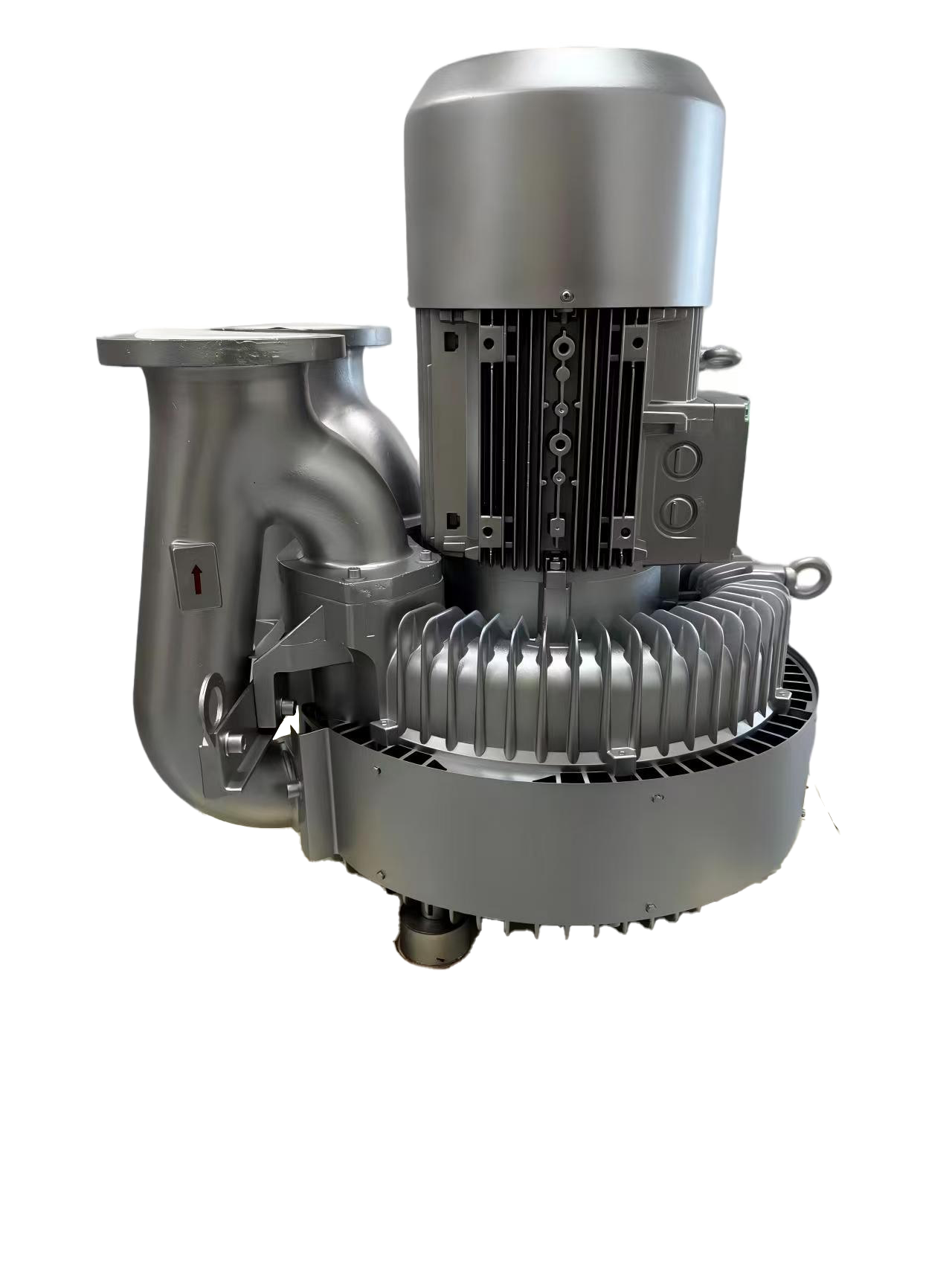
Ring blower is designed to generate high pressure and low airflow. Its working principle is based on the regenerative movement of air within the impeller and housing, which creates continuous circulation and compression. The impeller blades capture air, accelerate it, and then redirect it back into the channel for repeated compression cycles before discharging.
High Pressure Capability: Can generate significantly higher pressure compared to centrifugal blowers of similar size.
Oil-Free Operation: Provides clean, dry, and oil-free air, making it suitable for sensitive industries.
Durability: Built with robust materials to withstand continuous operation.
Compact Size: Space-efficient design for installations where space is limited.
Wastewater treatment aeration
Pneumatic conveying systems
Vacuum lifting and packaging
Printing and paper handling
Food and beverage processing
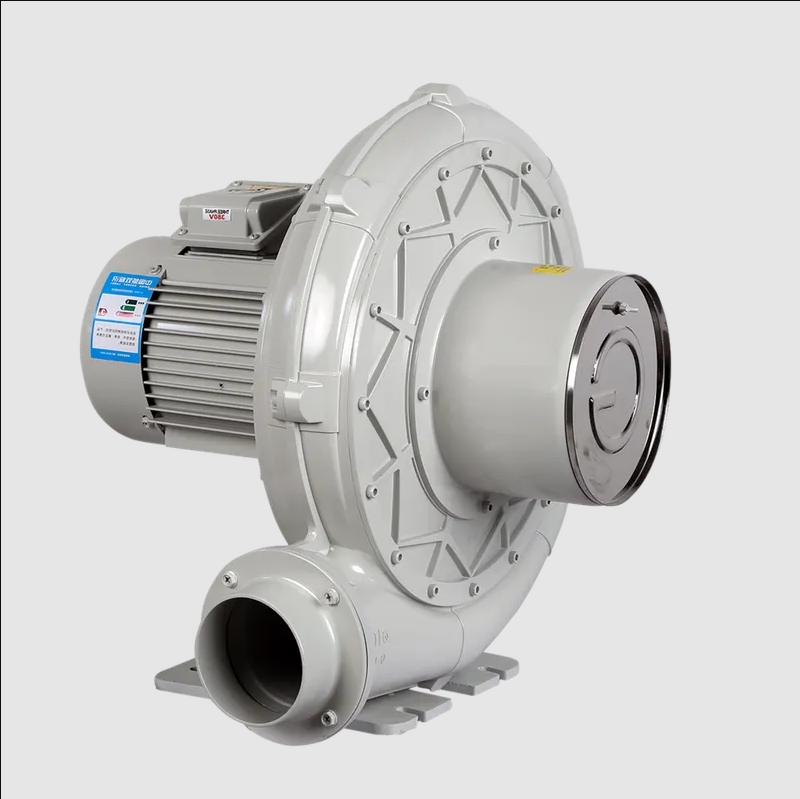
A centrifugal blower, often referred to as a fan, is designed to generate high airflow at relatively low pressure. The impeller draws air into the center and expels it radially outward through centrifugal force. This design makes centrifugal blowers highly efficient for moving large volumes of air across various industrial environments.
High Air Volume: Superior performance for applications requiring large-scale air movement.
Energy Efficiency: Well-suited for continuous-duty operations with stable efficiency.
Versatile Designs: Available in single-stage and multi-stage configurations.
Cooling Applications: Often used in HVAC and industrial cooling systems.
Industrial ventilation systems
HVAC systems for large buildings
Combustion air supply in boilers
Dust collection systems
Cooling of machinery and electronics
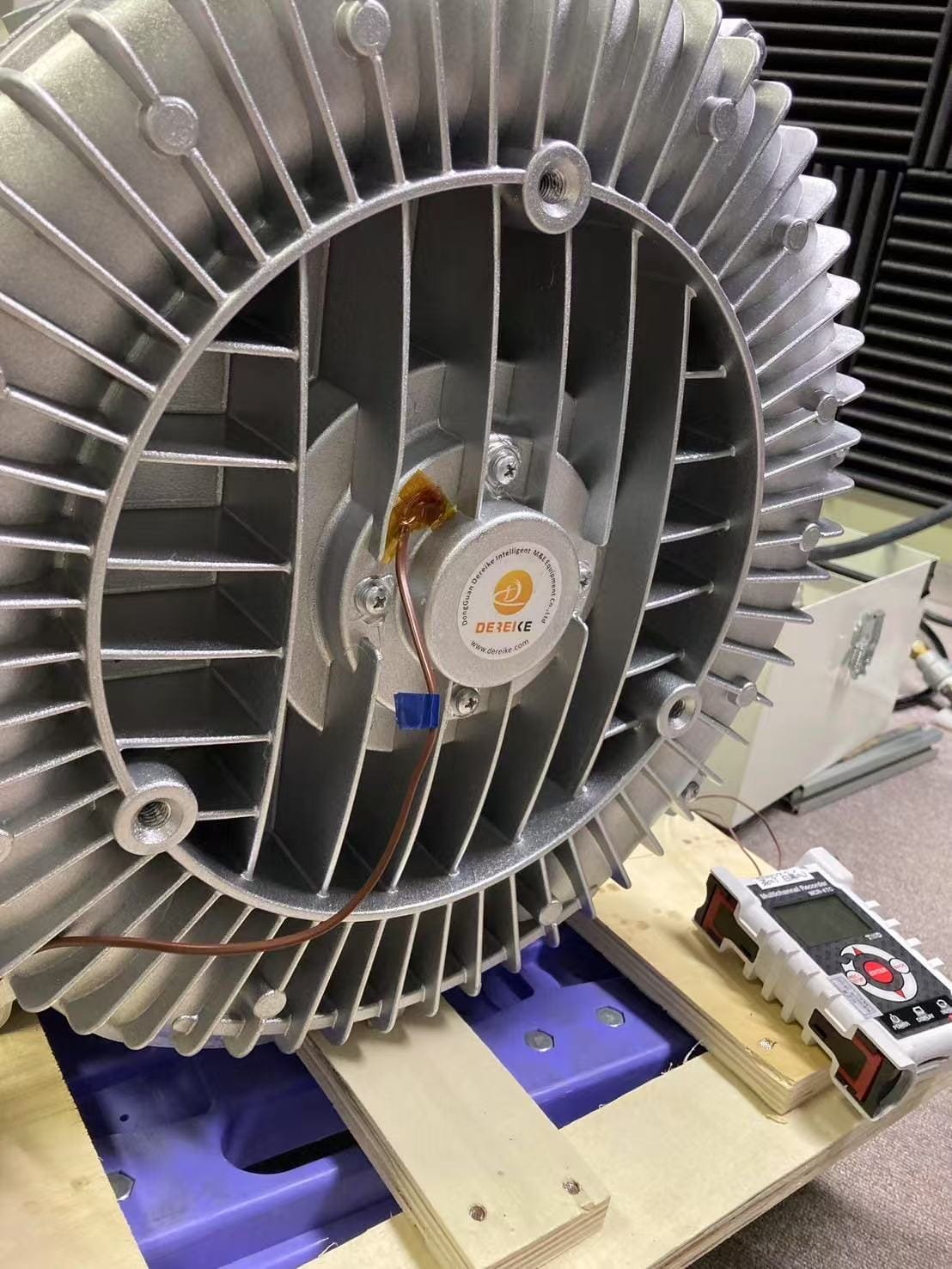
Ring Blower: Provides high pressure with moderate airflow, making it ideal for processes requiring strong suction or compression.
Centrifugal Blower: Offers high airflow at lower pressure, best for ventilation and air distribution.
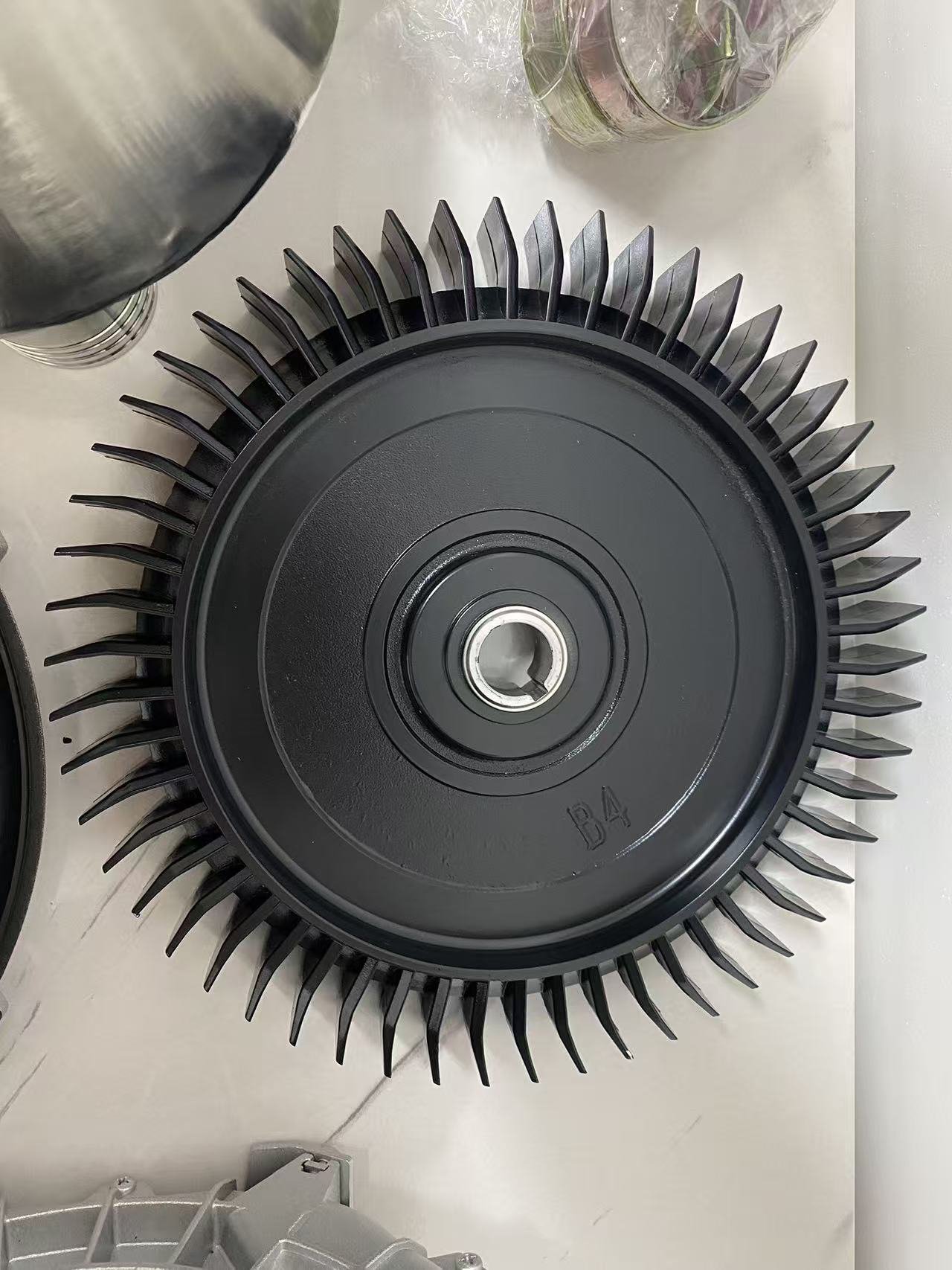
Ring Blower: Less energy-efficient at large-scale air movement due to its design, but highly effective where pressure is a priority.
Centrifugal Blower: More efficient in delivering airflow with relatively low energy consumption.
Ring Blower: Generates moderate noise due to the regenerative airflow cycle, though modern designs incorporate silencers.
Centrifugal Blower: Generally quieter, especially in low-pressure, high-volume operations.
Ring Blower: Low maintenance because it operates without lubrication, ensuring oil-free airflow.
Centrifugal Blower: Requires periodic inspection of bearings, belts, and motor alignment.
Ring Blower: Slightly higher energy cost for high-volume use but lower maintenance expenses.
Centrifugal Blower: Lower energy consumption in high-volume operations but may incur higher maintenance costs.
Superior in applications requiring pressure stability.
Reliable in oil-free air supply for clean industries.
Compact and lightweight compared to centrifugal blowers with equivalent pressure capacity.
Long service life due to robust design.
Best choice for high-volume air handling.
Cost-effective in large-scale HVAC and ventilation systems.
Broad range of models and performance ratings available.
Relatively quiet operation in standard conditions.
The decision between a ring blower and a centrifugal blower depends on the specific industrial application:
Choose a ring blower if:
High pressure is required.
Oil-free air supply is critical.
The application involves vacuum lifting, pneumatic conveying, or aeration.
Choose a centrifugal blower if:
Large volumes of air need to be moved.
Energy efficiency in continuous ventilation is a priority.
Cooling or dust collection is the primary application.
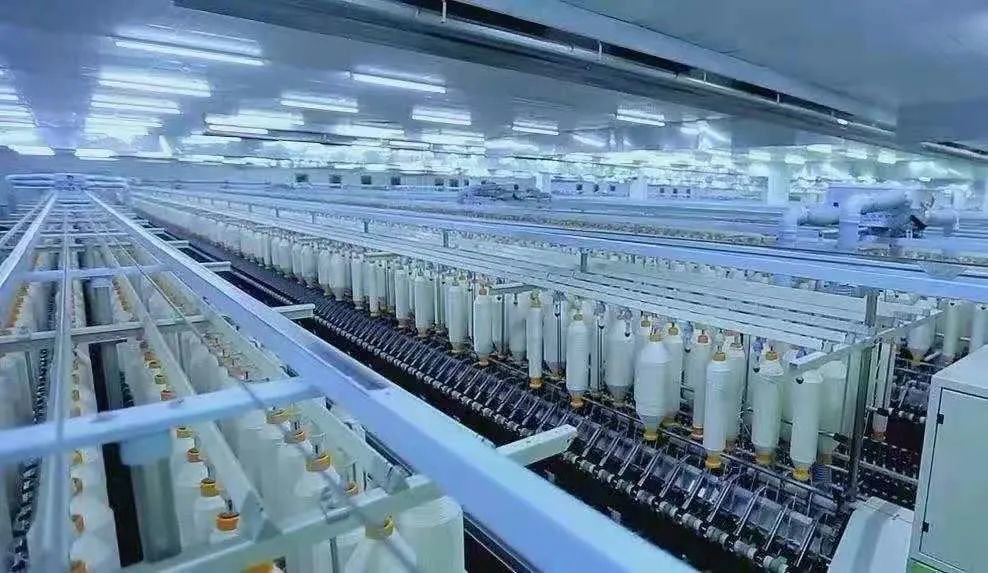
Ring Blower: Used for aeration in wastewater treatment plants to provide oxygen for microbial activity.
Centrifugal Blower: Deployed in exhaust systems to remove fumes and maintain air quality.
Ring Blower: Essential in vacuum lifting systems for packaging and assembly lines.
Centrifugal Blower: Widely used in cooling processes for machinery and product drying.
Ring Blower: Ensures hygienic, oil-free air for material handling and aeration processes.
Centrifugal Blower: Maintains proper ventilation and temperature control within production facilities.
Both ring blowers and centrifugal blowers are essential in modern industry, but they serve distinct purposes. The key lies in matching the blower’s performance profile to the application’s requirements. For high-pressure, oil-free air, the ring blower is the optimal choice. For high-volume airflow and ventilation, the centrifugal blower is superior. By carefully analyzing operational needs, industries can maximize efficiency, reduce costs, and ensure reliable performance.